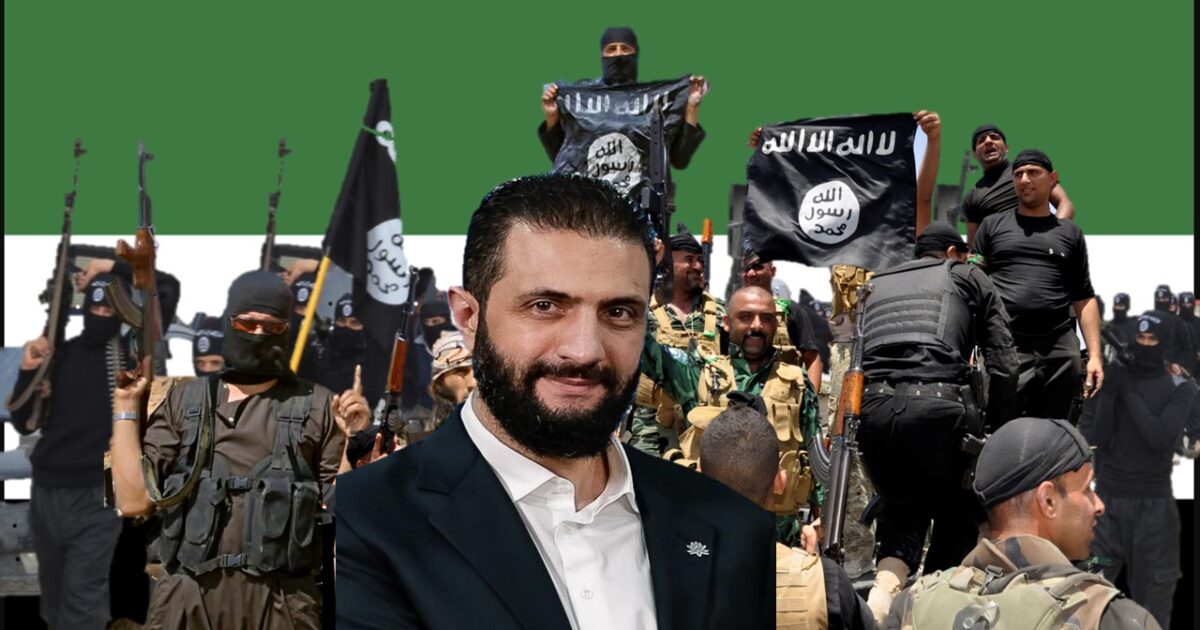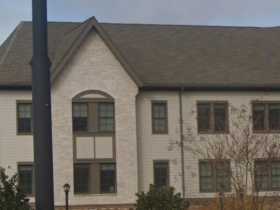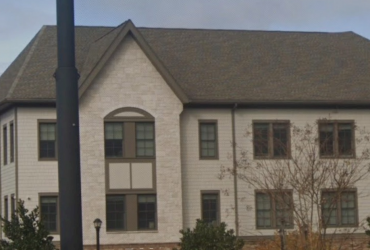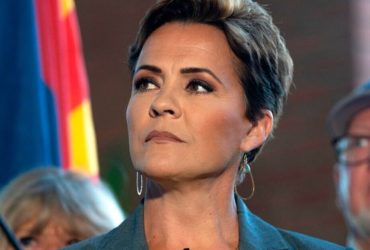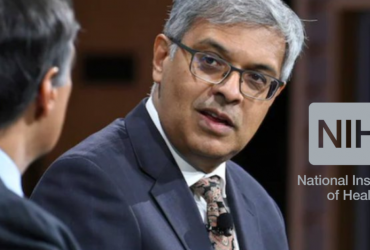Ahmed al-Sharaa, also known as al-Julani, former extremist commander and now Syria’s interim president. Composite image for illustrative purposes.
Under Syria’s new government, minorities including Kurds, Alawites, Druze, and Christians are being persecuted, killed, and driven from their homes, Dr. Morhaf Ibrahim, president of the Alawites Association of the United States, told me in an interview.
“The new constitution drafted under Ahmed al-Sharaa is a disaster. You cannot even find the word ‘democracy’ in it.”
Ahmed al-Sharaa, also known as al-Julani, became the country’s interim president after leading Hay’at Tahrir al-Sham, a coalition of extremist factions that ousted the regime of Bashar al-Assad and seized control in December 2024.
Since then, al-Sharaa has tried to repackage himself as an international statesman, even meeting with President Trump at the White House.
“I don’t really see that we’re on the right path.” said Dr. Ibrahim. “That really needs to be pointed out to everybody,”
According to many accounts, after the collapse of Bashar al-Assad’s regime, Syrians briefly believed that a new and more hopeful future was possible.
Aram Hanna, a Christian soldier with the Kurdish-led Syrian Democratic Forces (SDF), explained, “It was a good choice to kick Assad out after 14 years of fighting, but we have now another big problem.”
Ahmed al-Sharaa’s forces advanced quickly, promised amnesty, and encouraged soldiers to surrender peacefully. Hanna said, “Assad regime didn’t give the full citizenship to Christians or Kurds.”
A change of government was welcomed by the minorities, but they remained skeptical, because HTS was composed of elements linked to al-Qaeda, ISIS, al-Nusra, and other extremist groups.
The brief moment of hope vanished when pro-government paramilitaries massacred Alawite civilians on the coast and later attacked Druze communities in al-Suwayda, reviving memories of sectarian fear and betrayal.
This mistrust is rooted in nearly a century of fractured governance. Under the French Mandate, the Levant was divided into sectarian statelets with unequal development, leaving every community suspicious that any central authority would favor one group over others.
After independence, decades of Ba’athist rule built a security oligarchy, crushed political Islam, and entrenched sectarian anxiety, especially after the 1982 Hama massacre which left at least 40,000 people dead.
Many Syrians I encountered in both Syria and Iraq explained that one benefit of the Assad regime was that it was completely secular.
So, as bad as things were and as unequal as representation was in government, people knew where they stood and could survive if they were careful not to cross certain political lines or question the regime.
The new government, however, is moving toward Islamic extremism which, if carried out to its full extent, would leave no room for anyone who is not a Sunni Arab Muslim.
Dr. Ibrahim explained the extremist mindset that now threatens Syria’s minorities. He said the ideology is rooted in old fatwas from Ibn Taymiyyah, a medieval scholar whose rulings declared that Alawites, Druze, Christians, and Yazidis could be killed because their form of worship was considered illegitimate.
According to Dr. Ibrahim, this worldview teaches that “your money, your women, your blood should be halal,” giving extremists a theological basis to seize property, enslave women, and murder entire communities.
He stressed that the teachings of Ibn Taymiyyah form the ideological backbone of ISIS, al-Qaeda, al-Nusra, and al-Julani’s factions.
“In Syria right now, the books of Ibn Taymiyyah are in the streets, allowed to be sold, allowed to be given for free for everybody,” he said. “That’s pretty damn dangerous.”
“ISIS now are more dangerous because we have the Ministry of Defense, the Syrian Ministry of Defense, full of ISIS.’ Said Hanna.
“They can move freely. They’re not hiding now. They can have weapons. They can share information and go from area to area with all of their ability.” And in order to add a veneer of legitimacy, “They can pretend to be the Syrian army.”
Attempts at dialogue have only deepened the cynicism. The National Dialogue Conference in February 2025 was stage-managed, excluded key groups and regions, and presented predetermined outcomes, convincing participants that talk of reconciliation was merely for show.
The committee called for “unity of the Syrian Arab Republic,” which by name already excludes anyone who is not Arab.
This is ironic given that the name Syria is derived from the Assyrians, who are not Arab and who have inhabited the country for millennia.
Today, the Assyrians are represented primarily by the Assyrian Christian minority, which is also the most decimated community in the country. Syria’s Christian population fell from approximately 1.5 to 2.2 million to about 300,000 between 2011 and 2022.
The National Dialogue Conference also called for “sovereignty over its entire territory, rejecting any form of fragmentation, division, or ceding any part of the homeland.”
This statement was largely targeted at the Kurds in Rojava, northern and northeastern Syria, who lead their own multiethnic military, the Syrian Democratic Forces (SDF), and their civilian government.
But in a broader sense, al-Sharaa is talking not only about the Kurds, but also about disarming and dominating the Druze, Alawites, and other minorities, subordinating them all under a ‘Syrian Arab’ state identity that excludes their distinct ethnic identities
Follow-up local dialogues sidelined dissent and confirmed that consultation was symbolic rather than meaningful.
Even the small number of minority appointments to high-level ministries appear decorative, since real authority flows through security committees staffed by loyalists and regime-era figures.
As a result, al-Sharaa’s every gesture of cooperation is interpreted as manipulation, and every concession as a trap.
Al-Sharaa has consolidated power under a convoluted facade of democracy. He appointed one-third of the 210-member parliament directly (70 seats) and formed a ‘higher committee’ that supervised ‘electoral sub-committees’ to select the remaining two-thirds.
Dr. Ibrahim was sharply critical of the elections, calling them “a sham” with “no representation for the Alawites or Druze or Kurds.” The results reinforced his point.
Muslims won 118 seats, including 113 Sunnis, while only three Alawites and two Ismailis made it into parliament. Some sources say just two Alawites were elected out of 119 members.
There was zero Druze representation, not only because elections in Suweida were postponed after government-aligned extremists massacred Druze civilians there, but also because no Druze candidates appeared in other governorates such as Rural Damascus or Idlib.
Kurdish representation was similarly minimal, with only four Kurds elected, while the Kurdish-led region of Rojava, including the Kurdish-majority governorate of Al-Hasakah and SDF-administered areas of Raqqa, was excluded from the vote entirely.
“If Damascus keeps a strong central government, minorities cannot survive,” Dr. Ibrahim said. “A decentralized, federal, or confederal system would allow communities to govern themselves to a degree. Only then can Syria have a future.”
In Rojava, in northeast Syria, the Kurdish-led government and military already function autonomously, providing a higher standard of living, real security, and meaningful inclusion for minorities.
A similar situation is emerging in Suwayda, where Druze groups have formed a de facto military and civilian authority.
More than thirty-five factions consolidated into a National Guard on August 23, with a Supreme Legal Committee operating as the civilian wing of a Druze autonomous zone across central, southern, and eastern Suwayda.
The Alawites, by contrast, were disarmed and then massacred. Aram Hanna said many of those killed were combat veterans who could have defended their communities if they had not surrendered their weapons.
He warned that this is exactly why the SDF refuses to lay down its arms or allow itself to be absorbed into a Damascus-led federal army.
The Rojava model resonates with Dr. Ibrahim, and the lessons from this year’s massacres suggest that minorities must cooperate to avoid subjugation under an extremist government in Damascus.
“There is an organic alliance among Alawites, Druze, Christians, and Kurds,” he said. “Everyone understands that if Syria becomes a Sunni extremist state, there is no future.”
Antonio Graceffo reporting from Syria, Iraq, and Burma
The post Syria: No Positive Way Forward, No Democracy, No Rights for Minorities Under Extremist Government appeared first on The Gateway Pundit.

